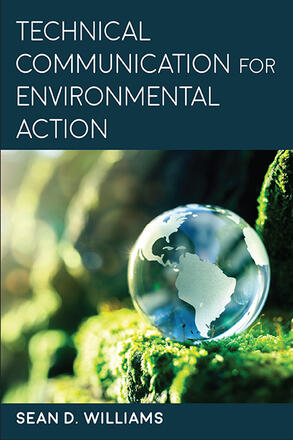
Technical Communication for Environmental Action
Alternative formats available from:
Open access edition available from:
This collection engages scholars and practicioners in a conversation about the ways that Technical Communication has contributed to pragmatic and democratic actions to address climate change.
Description
Climate change is one of the most significant challenges facing the global community in the twenty-first century. With its position at the border of people, technology, science, and communication, technical communication has a significant role to play in helping to solve these complex environmental problems. This collection of essays engages scholars and practitioners in a conversation about how the field has contributed to pragmatic and democratic action to address climate change. Compared to most prior work—which offers theoretical perspectives of environmental communication—this collection explores the actual practice of international technical communicators who participate in government projects, corporate processes, nonprofit programs, and international agency work, demonstrating how technical communication theories such as participatory design, social justice, and ethics can help shape pragmatic environmental action.
SUNY Press has collaborated with Knowledge Unlatched to unlock KU Focus Collection titles. The Knowledge Unlatched titles have been made open access through libraries coming together to crowd fund the publication cost. Each monograph has been released as open access making the eBook freely available to readers worldwide. Discover more about the Knowledge Unlatched program here: https://www.knowledgeunlatched.org/. It can also be found in the SUNY Open Access Repository at https://soar.suny.edu/handle/20.500.12648/8482
.
Sean D. Williams is Professor of Technical Communication and Information Design at the University of Colorado at Colorado Springs. He is the coauthor of Technical Writing for Teams: The STREAM Tools Handbook.
Reviews
"The book will be useful to practitioners in many fields as background on multiple and varied environmental issues and in presenting the diverse requirements involved in decision-making and framing approaches … Highly recommended." — CHOICE
"The strength of Technical Communication for Environmental Action resides in the diversity of approaches represented by the array of contributors. Its timely publication contributes to the scholarship on pressing environmental issues." — Lisa L. Phillips, Texas Tech University